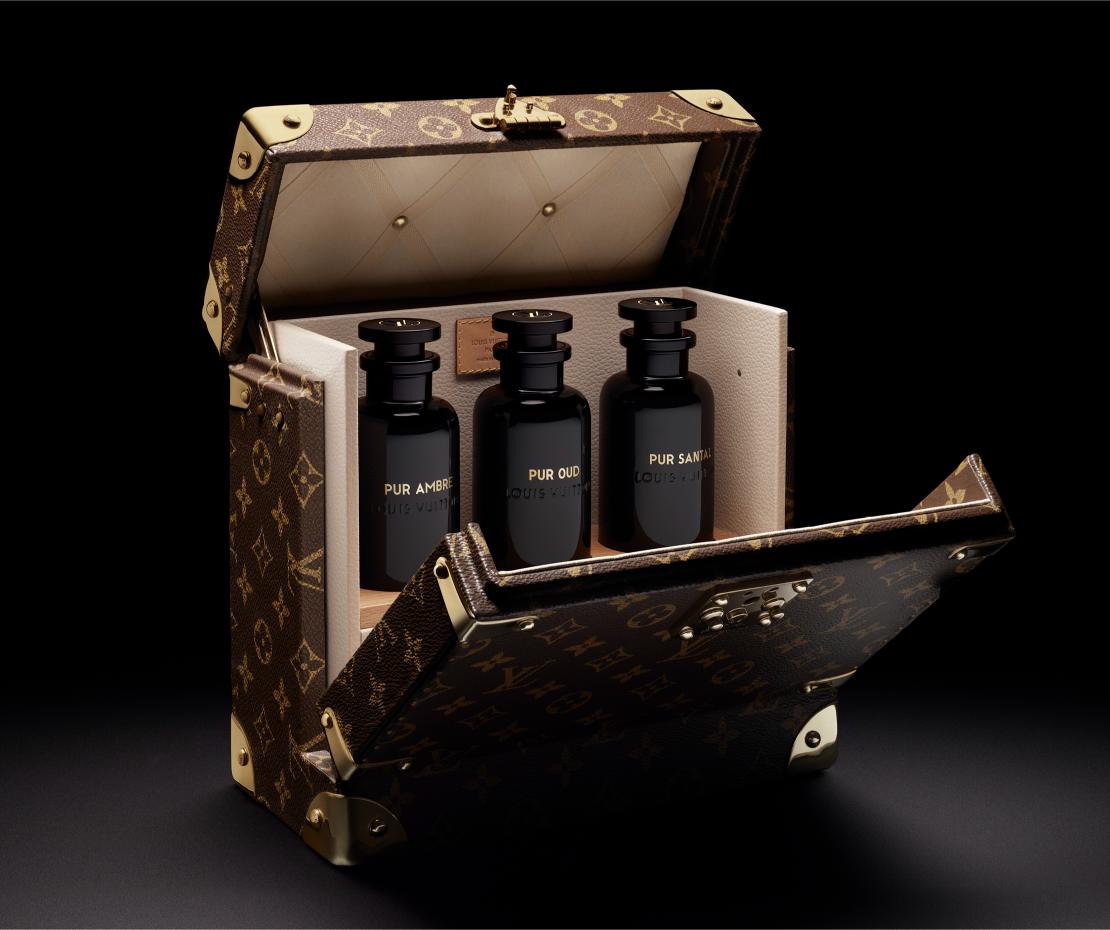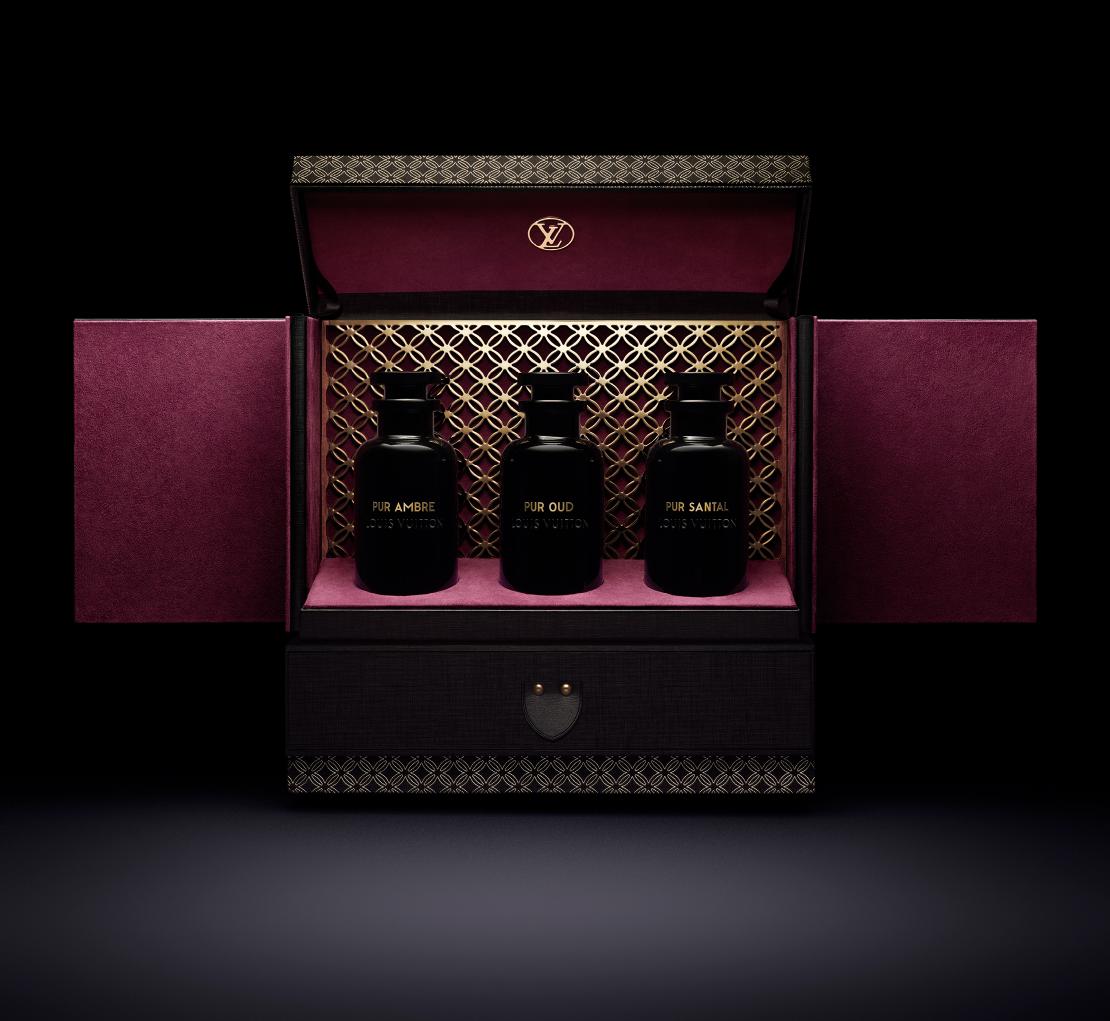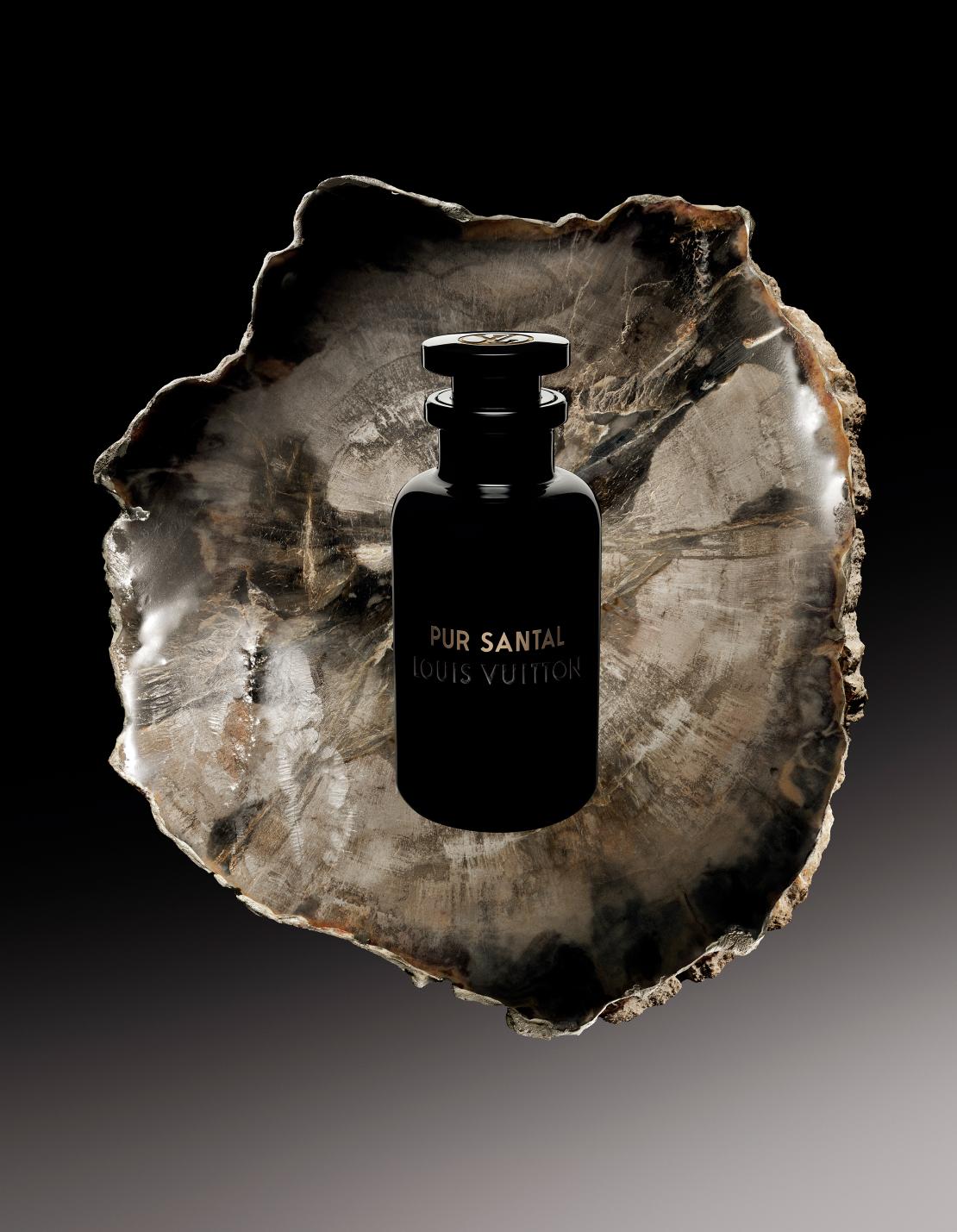Fragrance layering has been a tradition in the Middle East for many years. A practice that originally involved combining (or layering), two or more key ingredients to create a unique scent has today evolved into a trend adopted by many around the world, hoping to share a piece of their personality through the fragrance they choose.

Louis Vuitton’s Master Perfumer Jacques Cavallier-Belletrud
But fragrance layering is so much more than wearing two or more fragrances at the same time; it is a way of expressing emotions and creating an individual scent that can become associated with your personality.
Fragrance layering is something that has long fascinated Louis Vuitton’s Master Perfumer Jacques Cavallier-Belletrud and has been an integral part of the Maison’s fragrance segment thanks to the capability of allowing customers to personalise their fragrance creations. Now, the brand is launching The Pure Perfumes, a collection that offers clients the opportunity to layer the purest ingredients to create a completely unique expression. The collection of pure perfumes (oud, Ambre, and santal) are highly concentrated expressions of the three key ingredients that can be layered together or with other perfumes, allowing the wearer complete freedom of expression. The concentrates can be layered with the brand’s existing fragrances to create new facets and expressions of timeless scents. Here, we find out more about the importance of this collection, as well as the Middle East’s inspiration for the brand’s fragrances.

This fragrance collection is all about layering – something that is key to women in the Middle East – tell us about your experience of that.
I have always admired the art of layering, which was born here. Today, many brands around the world are pushing layering, but they forget that this is part of the culture in the Middle East. It’s something your mother may have done when you were young. It’s so much more than just mixing two perfumes together; it’s about developing and revealing an olfactory identity of yourself, which is really different from what Western people think of as layering. Layering is very personal; it’s an art, and I believe it is truly done best here in the Middle East. I’m starting to practice it myself, and it is much more complicated than just taking two perfumes and mixing them and it’s something women here know by intuition. I have an admiration for it because it goes against my education in perfumes which taught me to never mix two perfumes, but step by step I have learnt that mixing can be a dream. It has opened many doors for me.
When we talk about layering, each scent has its own identity – what is the process for you when you are dealing with complicated scents like this and layering them?
When we are dealing with major scents such as amber, oud, sandalwood as well as musk, or vanilla, they are already perfumes in their own right. So, for me, it is about pushing a character within a fragrance to add part of your personality and to showcase the way you are feeling. I start from those considerations, and I love the idea that when you are using a perfume, you are creating mystery and you are building a character. It is always about what we are thinking of at that moment, creating an attraction first with yourself and then with others. It’s a very emotional thing that’s difficult to explain, but it creates a feeling. It’s a very private language.

Tell us more about the collection you are revealing today in the Middle East.
A few years ago, we created an experience with pure oud, and I wanted to present the Louis Vuitton oud to our clients, mixing it with some of their favourite Louis Vuitton perfumes. It was very successful, and last year, we became the first brand in terms of buying in this much quantity of oud. No other brand is using oud in such a large proportion, and we are very proud of this. It is a tribute to the Arabic culture of perfumes. So, after the tremendous success of this experience, I decided to continue the story with amber and sandalwood, offering these molecules that we are using in our perfumes in a high concentration.
What’s your take on the use of synthetic ingredients as natural ingredients become more and more rare?
Synthetics are necessary to create perfumes and modern perfumery was born because chemists investigated nature and reproduced some of the key ingredients that are responsible for certain scents. Just because something is synthetic doesn’t mean it’s bad. We are now avoiding all materials that are polluting. In terms of responsibility, we cannot defend using those kinds of materials and therefore, we sometimes need the assistance of synthetics. We are fully engaged in the process of verifying with our suppliers where our ingredients come from and what our suppliers around the world are doing. And at the same time, we are paying attention to and financing many projects that are trying to preserve these resources. This way, we can be more respectful of nature. We have several projects now in Africa, combining many activities of the group, so the concept of just taking from nature and not being respectful is changing a lot.
Within the industry today, when we come to fragrances, it is rare to find noses in people – what are the steps you would suggest in identifying and harnessing these kinds of talents?
I think this kind of talent comes with hard work. Becoming a nose comes with training, and the problem is that today, some people want to do it to become famous. What I am looking for is passion. If someone is passionate about it, they will have the capacity to work hard. I tell them they must be obsessed with what they are doing. And many young people today don’t understand that. Curiosity is the key, and that means looking at what others are doing and what people are expressing in different segments. There is always something to learn, but it is about evaluating and assessing what is going on and what is coming.

Where do you see the future of haute perfumery?
I think we are at the end of massification, fortunately, which is also a problem. Because for brands, young people don’t want to only own a fragrance. They want to understand the concept; they want to experiment – it’s still working for some brands but not all of them. So the future for me is very clear, it’s about being more exquisite, more expensive, otherwise, you will become mass. That’s why I believe anything that is promoted too much, will have a shorter shelf life. I think there will be some brands that can do both, but it’s difficult to have both a high-end perfume collection and a mass one – how can you defend the difference in quality – by the price, the ingredients? I think we are entering a world where the truth and reality of the materials will drive the clients.
Delivering strong emotions through scents is not difficult, but it must be right. If it’s too complicated, it won’t work and vice versa. There are things you cannot explain. It is magic. No marketing, no commercial, no executive could produce these kinds of emotions, it is only the creator that can create these magical things, and so I think in the future, less marketing will design fragrances, more independent offices will work on new concepts with freelance perfumers, and brands will try other ways to be successful. They are spending millions on advertising and other things related to the perfume, but they are not spending millions on the perfume itself. So, we see that the market is going down, and we see the younger generations going for niche brands. There is a big shift, and I think in the future, we will have a lot of new brands arriving on the market, but perhaps more within this niche area.















